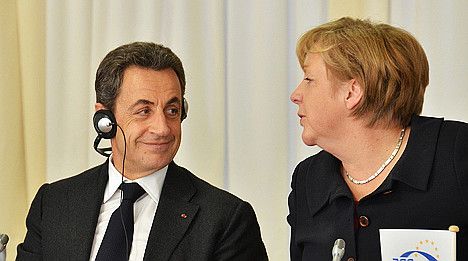“I wish to recall that the Socialist candidate (Francois Hollande) intervened at the SPD (Social Democratic Party) congress and repeated several times in his speech that Germany should elect a new government in 2013,” Merkel’s spokesman Steffen Seibert told a regular news conference.
“At the time we didn’t complain. And why would we have done? It’s completely legitimate.”
“In the same way, nobody should complain that the leader (of the conservative party) CDU is taking a position in favour of a political friend,” Seibert added.
Hollande, who is the frontrunner in opinion polls to win the French presidency, addressed Germany’s centre-left opposition SPD on December 5 in the German capital.
Seibert also denied a media report that several conservative European leaders had struck a pact to snub Hollande because of his declared intention to renegotiate a budgetary discipline pact.
“Such an alliance does not exist,” he told reporters.
The right-wing leaders of Germany, Britain, Italy and Spain have all already denied the report in German weekly Der Spiegel that they had a verbal pact not to meet Hollande in the run-up to April’s presidential poll.
Merkel currently has no meeting scheduled with Hollande, Seibert added.
Her active support for Sarkozy’s re-election campaign is a personal engagement as leader of Germany’s centre-right Christian Democratic Union (CDU) and not as the nation’s chancellor, her spokesman has said.




 Please whitelist us to continue reading.
Please whitelist us to continue reading.
Member comments